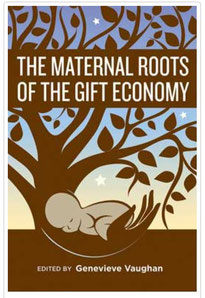Book contributions
- 2023. Tazi-Preve, M. I. Deconstructing Patriarchal Motherhood. In: Sid Reger, Mary Jo Neitz, Denise Mitten, Simone Clunie (Eds.). Maternal Thinking. Gifts, Mother’s Bodies and Earth. Volume 4. Proceedings of the Association for the Study of Women and Mythology (ASWM). Women and Myth Press, p.183-203. ISBN: 978-1-960922-99-1
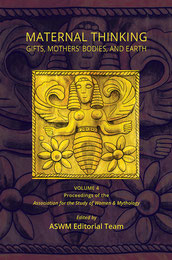
- 2023. Tazi-Preve, M.I. Tirol als weibliche Heimat. Eine (nicht nur) persönliche Geschichte. (Tyrol as female homeland. A (not only) personal story) In: Horst Schreiber und Elisabeth Hussl (Hg.). Gaismair-Jahrbuch 2024. Alles in Ordnung, p. 116-129.
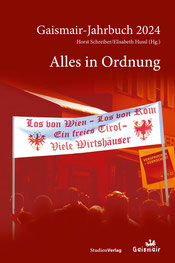
- 2021. Tazi-Preve, M. I. Austrian Welfare State and the Mother Trap. In: Shadmi, E. (Ed.). The Legacy of Mothers: Matriarchies and the Gift Economy as Post Capitalist Post Alternatives. Toronto: Inanna Publications.
- 2021. Tazi-Preve, M. I. Il welfare state austriaco e la trappola della madre. (The Austrian Welfare State and the Mother Trap) In: Shadmi, E. (Ed.). Il Sentiero della Madre. Maternita, matriarcato ed economia del dono per un cambio di civilta postcapitalista. Milano: VandA.edizioni, p. 89-109.
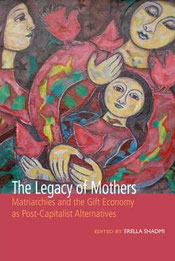
- 2021. Tazi-Preve, M. I. La Maternità Nei Tempi Moderni. (Motherhood in Modern Times) In: Nascere e Mettere al Mondo, Sguardi Sociali e Filosofico Politici. Atti della Summer School (23. – 26.9.2020). A cura di Daniela Danna. Salento University Publishing, p. 47-56.
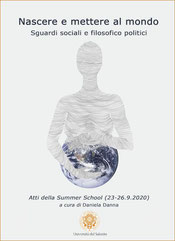
- 2021. Tazi-Preve, M.I. Mutter und Kind dies- und jenseits der Kleinfamilie. (Mother and Child in and beyond the Nuclear Family) In: Hemma Schmutz, Sabine Fellner, Elisabeth Nowak-Thaller (Hg.). Wilde Kindheit. Katalog herausgegeben anlässlich der Ausstellung im Lentos Museum Linz. Verlag für moderne Kunst: Wien, p. 43-49.
- 2021. Tazi-Preve, M.I. The Perversion of Maternal Gift Giving: Initiating the Matrilinear Motherhood Now Movement, In: She Summons. Why Goddess Feminism, Activism and Spirituality? A Mago Books Anthology. Edited by Kaalii Cargill and Helen Hye Sook Hwang, p. 59-86. Reprint (Print and Ebook). online pdf-version
- 2020. Tazi-Preve, M.I. Reversing Matricide. in: Kaarina Kailo with Erella Shadmi (ed.). Mothering, Gift and Revolution. Honoring Genevieve Vaughan’s Lifes’s Work. Finland, p. 147-160.
- 2020. Buchebener-Ferstl, S. & Tazi-Preve, M. I. Austria. Enthusiastic Fatherhood. In: Francine M. Deutsch and Ruth A. Gaunt. (ed.). Creating Equality at Home. How 25 couples around the world share housework and childcare. Cambridge University Press, p. 221-235.

- 2019. Tazi-Preve, M.I. The Austrian Welfare State and the Mother Trap. In: Shadmi, E. (Ed.). The Mother’s Legacy: Gift Economy, Matriarchy and Post Capitalism. Kul-Shee Publisher (in Arabic).
- 2019. Tazi-Preve, M.I. The Perversion of Maternal Gift-Giving. Initiating the Matrilinear Motherhood NOW Movement. In: Genevieve Vaughan (Ed.) The Maternal Roots of the Gift Economy. Toronto: Inanna Publications, pp. 38 - 54.
The idea of a free gift economy has become important in the movement for alternative economics, however the connection with women and especially with mothers has not been widely understood. The conference “The Maternal Roots of the Gift Economy,” held in Rome in 2015, brought together women and men from around the world to discuss this important issue. In a moment when the values of Patriarchy and the market seem to have triumphed, the values of mothering and care are more sorely needed than ever.
Find the book here: Inanna Publications

- 2017. Tazi-Preve, M.I. La Perversione del donare materno. Movimento per la Maternita` Matrilineare ORA (The Perversion of Maternal Giftgiving. Initiating the Matrilinear Motherhood Now Movement). In: Genevieve Vaughan (Ed.) Le Radici Materne dell’ Economia del Dono (The Maternal Roots of the Gift Economy). Milano: VandA.ePublishing, p.43-61.
- 2014. Tazi-Preve, M.I. Mutterschaft in der patriarchalen Gesellschaft (Motherhood in Patriarchy - in Hebrew). In: Erella Shadmi (Ed.). Mother`s Path. Tel Aviv: Verlag Resling, p. 67-82.
- 2013. Tazi-Preve, M.I. Vom Widerständig-denken-Lernen bei meiner Doktormutter Claudia von Werlhof zur patriarchatskritischen Familientheorie. (From Learning dissident thinking to my Gender Critical Family Theory – Paying Homage to my PhD adviser Claudia von Werlhof) In: Mathias, Frick, Theresa, Scheiber, Ursula und Simone Wörer (Hg.) Von der Weltsystemanalyse und Subsistenzperspektive zur Kritischen Patriarchatstheorie. Frankfurt a.M./Berlin/Bern/Bruxelles/New York/Oxford/Wien: Peter Lang Verlag, p. 49-58.
- 2012. Tazi-Preve, M.I. Väterpolitik in Österreich: Status quo und Wege für die Zukunft. (Policies concerning Fathers in Austria. Appraisal and New Concepts) In: Heinz Walter und Andreas Eickhorst (ed.) Das Väter-Handbuch.Theorie, Forschung, Praxis. (Handbook on Fatherhood) Psychosozial-Verlag: Gießen, p. 147–164.
- 2011. Schmidt, Eva-Maria & Tazi-Preve, M.I. Väter und Väterforschung - ein Literaturüberblick. (Fathers and Fatherhood – a Literature Survey) In: Olaf Kapella, Christiane Rille-Pfeiffer (Hg.) „Papa geht arbeiten“. Vereinbarkeit aus Sicht von Männern. Schriftenreihe des Österreichischen Institutes für Familienforschung. Nr. 23. Opladen-Farmington Hills, MI: Barbara Budrich Verlag, p.11-46.
- 2010. Tazi-Preve, M.I. „Religion heißt, was für ein Mensch bist Du.“ Das Verständnis muslimischer MigrantInnen von Familie, Religion und Geschlechterverhältnis. ("Religion Determines what Kind of Person You are.“ The Perception of Family, Religion and Gender by Muslim Immigrants.) In: Wolfgang Mazal (ed.) Familie und Religion. Reihe Familienforschung. Nr. 22. Opladen-Farmington Hills, MI: Verlag Barbara Budrich, p. 239-308.
- 2010. Tazi-Preve, M.I. Familie als matriarchale Sozialordnung. (Family as Matriarchal Social Order) In: Uschi Madeisky (Hg.) Die Ordnung der Mutter – Wege aus dem Patriarchat. Dokumentation des Internationalen Mutter Gipfels 2008. Christel Göttert Verlag, p. 57-94.
- 2009. Tazi-Preve, M.I. Die Vereinbarkeitslüge. Von der Unvereinbarkeit der Ansprüche von Staat, Familie und Arbeitswelt aus system- und geschlechtskritischer Sicht. (The Lie about Reconciliation. About the Contradicting Demands of State, Family and Labour Market) In: Mariam Irene Tazi-Preve (Hg.): Familienpolitik – Nationale und internationale Perspektiven. Reihe Familienforschung. (Family Policy – National and International Perspectives) Vol.20. Opladen: Verlag Barbara Budrich, p. 57-84.
- 2008. Tazi-Preve, M.I. …Vater sein um so mehr. Österreichische Väter in Sozialpolitik und -praxis. (Austrian Fathers in Family and Politics) In: Tel Aviver Jahrbuch für Deutsche Geschichte 2008. (Tel Aviv Yearbook for German History) Göttingen: Wallstein Verlag, p. 293-308.
- 2007. Tazi-Preve, M.I. Evaluationsbericht zum Kinderbetreuungsgeld (2001 – 2006). (Report on the Evaluation of the Austrian Parental Leave Model) In: Christiane Rille-Pfeiffer, Olaf Kapella (Hg.) Kinderbetreuungsgeld. Evaluierung einer familienpolitischen Maßnahme. Schriftenreihe des Österreichischen Institutes für Familienforschung. Band 15. Innsbruck: Studienverlag, p. 3-102. (mit Olaf Kapella und Christiane Rille-Pfeiffer)
- 2006. Tazi-Preve, M.I. Demography and Gender. In: David Lucas (ed.). Beginning Population Studies. Australian National University.
- 2006. Tazi-Preve, M.I. Vaterschaft heute. Zentrale Ergebnisse auf Basis des Population Policy Survey. (Fatherhood today. Central Findings based on the PPA) In: Harald Werneck, Martina Beham und Doris Palz (Hg.) Aktive Vaterschaft. Männer zwischen Familie und Beruf. Gießen: Psychosozial-Verlag, p. 230 – 244.









